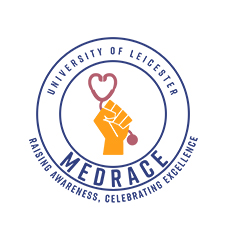College of Life Sciences
Mainstreaming EDI across the learning environment

In order to tackle racial harassment in medical schools, there is a need to increase awareness and understanding of EDI issues among staff and students. Staff and students from minority ethnic groups should be consulted and be active partners is discussions about race equality in medical education.
Key actions
- We will embed EDI in medical school values and engage with medical students and staff from minority ethnic groups in action to change culture.
- We will ensure effective EDI training and education is provided which is tailored to the needs of medical students and staff.
- We will actively engage in processes and efforts to widen the diversity of academic staff.
Progress
 Areas of progress and projects that mainstream EDI across the learning environment include:
Areas of progress and projects that mainstream EDI across the learning environment include:
- Updates of the annual student agreement to include specific references to racial harassment and discrimination, for example, adaptation of the Halo code to prevent hair discrimination.
- Academic and quality improvement opportunities for students with an interest in this work. Examples include:
- Student Selected Components (SSCs) on a wide range of subjects related to equity in student experience, healthcare and in developing inclusive curricula, as well as an an evaluation of MedRACE itself. Projects that have made a real difference within Medical School teaching. Read some of our students' perspectives of completing an SSC project in blogs by Kike Solanke and Ese Oyokose, and a video from Sethara Alwis.
- Development and presentation of a 'decolonising dermatology' ('Teaching of Teachers') seminar for GP Tutors (co-created by Dr Maria Keerig and Takunda Nhiwatiwa)
- Development of a Racial Inclusion in the Curriculum Toolkit
- Review of curricula within placements to ensure greater inclusivity, for example, for primary care:
- Under paediatrics - be able to assess safeguarding issues in children, in the context of the child and their family’s culture
- Under dermatology -knowledge of common dermatological conditions , and their varying manifestations in different ethnic groups
- Under palliative care -be able to discuss ethical issues in end of life care, whilst recognising and respecting potential cultural differences
- Under mental health - be able to recognise, assess and manage common presentations of psychiatric illness in the community e.g. depression and anxiety, whilst being aware of their potentially differing manifestations in different ethnic groups
- Encouraging student involvement and contributions to/support from national organisations, e.g. Melanin Medics, DIMAH
- Supporting work towards identifying and closing the awarding gap.
- Annual EDI training for all Medical School staff is mandatory, and in consultation with MedRACE students, we have reviewed and updated the Phase I induction EDI lecture.
- Exploration of potential barriers to greater staff diversity (working with HR and Recruitment), for example we have introduced student interview panel training so that students can be part of the selection process for new staff.
